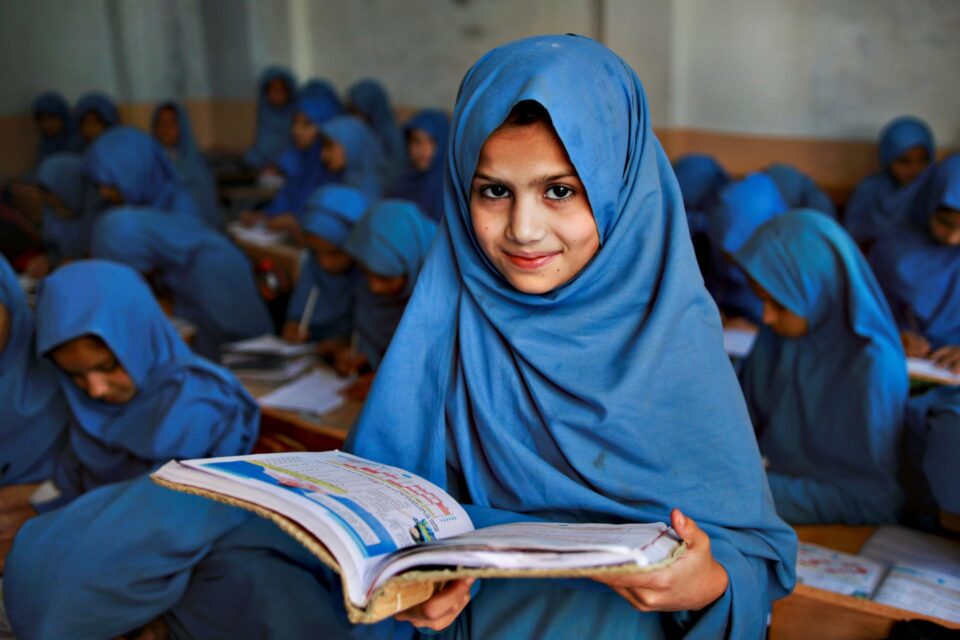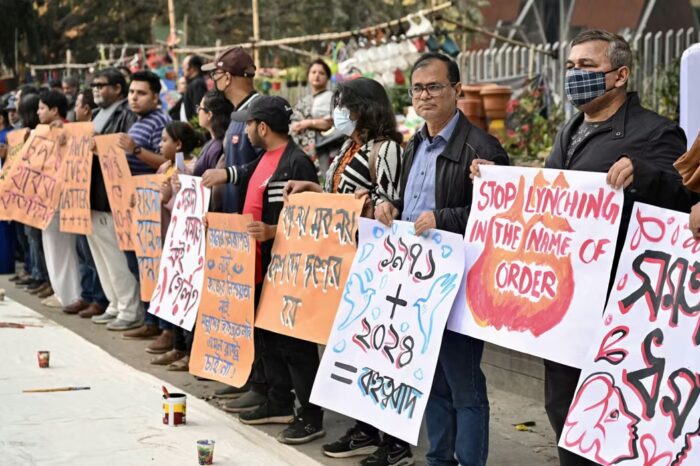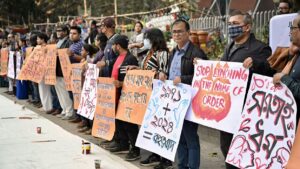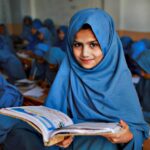Pakistan’s learning crisis deepens after devastating effects of the pandemic and floods

Image by UNICEF/PAKISTAN/Asad Zaidi
British High Commissioner, Dr Christian Turner CMG, visited Islamabad Model School for Girls, Jaba Taili, Islamabad on Thursday, to observe how an innovative approach to professional development of teachers is delivering improved learning outcomes.
The High Commissioner visited classrooms where teachers are using tailored lesson plans, catering to the different learning levels of each student from underserved communities across Islamabad. These teachers, known as fellows, have been recruited and trained as part of a partnership between the Foreign, Commonwealth and Development Office, UK, the Federal Directorate of Education, Islamabad and Teach for Pakistan. Director Academics, Ms Riffat Jabeen and Director Planning and Development, Inam Jahangir, of the Federal Directorate of Education, and Founder and Chief Executive Officer of Teach for Pakistan, Khadija Bakhtiar accompanied the High Commissioner during the visit.
8 out of 10 Pakistani children can’t read a short paragraph by the age of 10. National Annual Status of Education Report, 2021 shows that overall learning levels are even lower in girls than boys between the ages of 5 and 16. Covid-19 and the recent devastating floods have further aggravated Pakistan’s learning crisis.
British High Commissioner, Christian Turner, said, “Girls’ education is key for Pakistan’s success. It reduces poverty, improves health and boosts the economy. The UK is working with Pakistan to help give every girl 12 years of quality education.”
Currently, 155 fellows/teachers are reaching more than 10,000 students in 52 schools in underserved areas in Islamabad to improve learning outcomes across Islamabad.
Pakistan is home to approximately 12.2 million out of school girls – this is equivalent to 9.2% of the world’s total out of school girls. Distance to school and socio-cultural norms are key barriers to girls’ accessing 12 years of quality education. But so are the low learning levels.
Teach for Pakistan’s CEO Khadija Bakhtiar, added, “A key part of the TFP fellowship is about parental engagement. Learning accelerates when parents are able to fully participate in their children’s learning. Fellows develop community programmes – ranging from community libraries to science and technology competitions. All this helps to build the teacher-parent relationships, and ultimately strengthen the learning of individual children.
“The recent campaign Aaj Kya Seekha? led by civil society and supported by the UK, has similarly called attention to Pakistan’s learning crisis and the important role parents can play to support children in achieving improved learning outcomes.”
The pandemic has deepened existing inequalities, with girls worst affected. It is estimated that the learning lost as a result of school closures during the pandemic will have cost the Pakistani economy approximately US$155 billion.
Loss of access to school for 3.5 million children during the devastating floods will further exacerbate these low levels of learning. 1 million children are expected not to return to school, due to the high costs of education and the low levels of learning.








